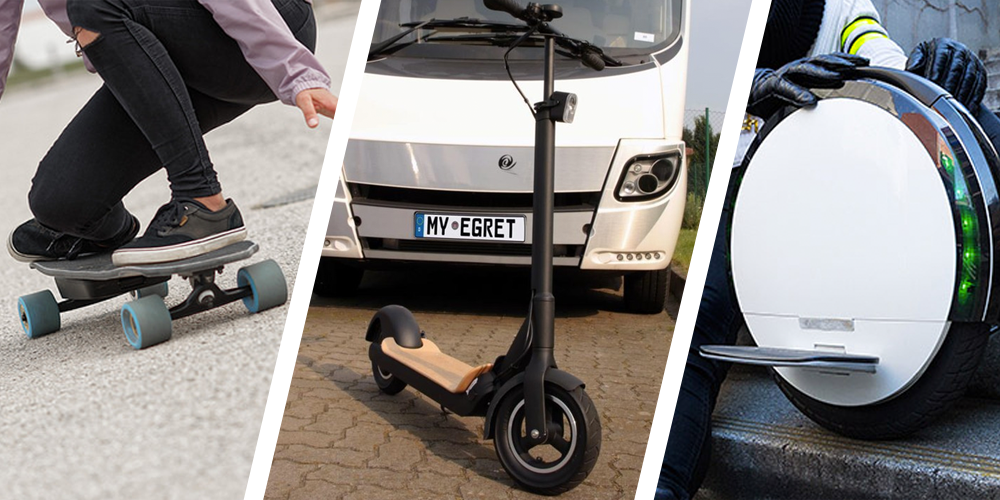Last mile electric vehicles to become legal in Germany
This is a change of law many manufacturers of electric kick scooters or electric skateboards have long been waiting for. All these so-called Personal Light Electric Vehicles (EU says PLEV) will become legal in Germany, latest in 2019.
The country thus follows European legislation finally. In France or other places, the little last mile motorised vehicles had long been allowed to zoom around town. In Germany the new law will go into effect latest in early 2019. It will then gather all these mostly remote-controlled electric longboards or throttle-powered electric kick scooters and mono-wheelers in one category. Most importantly, it will open (or legalise) a whole new market for both rental services such as Lime Bike or most recently Mytaxi as well as for manufacturers like Segway.
In order for you to get ready, electrive has asked the German Ministry of Transport about the new rules soon to be applied to Personal Light Electric Vehicles (PLEV). Here they are:
- A maximum speed of 20 kph applies. Anything faster makes a helmet compulsory, although many users are wearing one freely anyway for safety reasons.
- Small electric vehicles are subject to compulsory insurance, including insurance plates. The damage a PLEV may cause is low in monetary terms. So more important here is the aspect of being able to identify the owner via their number plate.
- According to the ordinance, PLEVs must use “existing cycle path structures or cycle lanes”. In plain words, PLEV must share the way with bicycles and must refrain from using the road as long as there is a cycle path.
- The electric motor power is limited to 500 watts. Up to 1,200 watts are permitted for self-balancing vehicles.
- “Minimum requirements for driving dynamics” must be met. In plain English: A light electric vehicle must be roadworthy, it must be able to brake, be controllable and very probably have a lighting system. The details have not yet been defined.
- The regulation applies across Germany. This is an important circumstance to avoid creating a chaotic patchwork of different municipal regulations.
- The law is set to go into force at the end of 2018 or beginning of 2019.
Overall, these are good news. Not only joins Germany the rest of Europe. Also electric mobility once more becomes more diverse. However, some problems that have been around for years, also with regards to e-bikes and pedelecs, have not been addressed. Take for example the requirement for Personal Light Electric Vehicles (PLEV) to use the cycle path. These are already overcrowded in many cities and the different speeds will likely lead to problems. Moreover, the compulsory number plate may fuel the debate whether (electric) bicycles need an insurance (we reported). Still, with patience and tolerance these little last mile electric vehicles will foremost become a new and fun alternative to using a car.
>> with reporting by Christoph M. Schwarzer for electrive.net





4 Comments